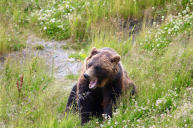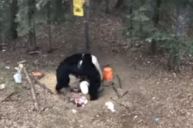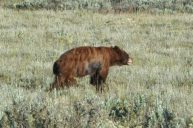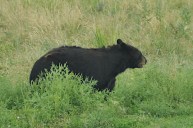The National Park Service announced a new rule banning sport hunters from bear baiting on federal lands in Alaska. Sarah Creachbaum, the agency's regional director for Alaska, explained that the rule change "will advance wildlife conservation goals and objectives" so they comply with federal law.
According to last week's announcement, the Park Service said that while the rule change will protect wildlife, it will also make it safer for visitors. The agency explained that "bear baiting encourages bears to become conditioned to human-provided food, increasing the likelihood of negative human-bear interactions."
The new rule reverses a reversal of a rule
In 2020, the Trump administration implemented a regulation that allowed hunters to use bait like bacon grease, pastries, dog food, etc. to attract bears. That effort rolled back an Obama-era rule that banned bear baiting and certain other tactics for predator hunting on federal land. What's more, the Trump-era rule allowed state policy to take over wildlife management as the rule aligned with existing state laws.
However, a federal court ordered the Park Service to reconsider the Alaska Hunting and Trapping rule in February 2022. The judge presiding over the case reportedly found several problems with the Trump-era rule, namely that the plan was "arbitrary and capricious because NPS disregarded without explanation its conclusion in 2015 that State regulations fail to adequately address public safety concerns associated with bear baiting."
Then, in January 2023, the Park Service proposed to reverse the Trump rule and opened it up to a 90-day public commenting period. By the end, it collected nearly 200,000 comments.
Environmental and wildlife groups are praising the rule change. In a blog post, the Humane Society called the decision to ban bear baiting "a step forward" but says they still have work to do. The agency still permits other tactics, such as shining artificial light in bear dens and using radio-collared dogs. The organization argued that "more than 99% of the comments submitted" on the Trump rule supported banning those methods of hunting and trapping, but they were not reversed in the latest rule change.




